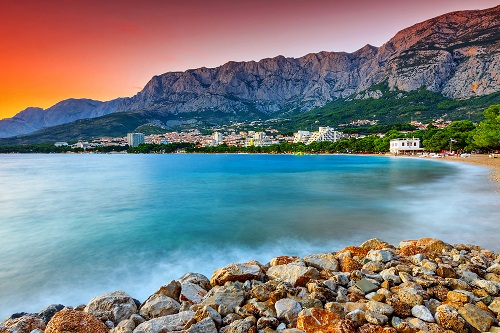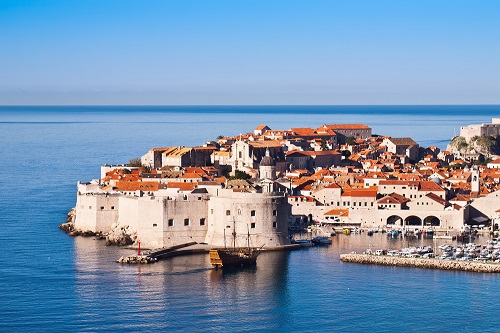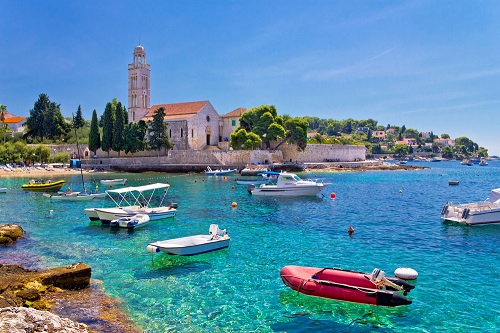Croatia currently has a two-tier health insurance system, which consists of both private and public cover. If you are working in the country, then the latter is compulsory, and your employer will need to register you with the HZZO (the national scheme). However, you can also take out private health insurance. This can act as a top-up for the national system, and it may give you extra peace of mind. There is also a form of supplementary insurance available. We will look at your options below.
How does the Croatian state health insurance system work?
Croatia has a good standard of both private and public healthcare. The public health system is regulated by the Ministry of Health and the Ministry of Finance, and healthcare institutions are run both by the central government and regionally.
There are three main types of national coverage:
• Obavezno zdravstveno osiguranje – public basic health insurance
• Dopunsko zdravstveno osiguranje – public or private supplemental health insurance
• Dodatno zdravstveno osiguranje – private supplemental health insurance (usually offered by banks as well as insurance companies)
National health insurance is mandatory for everyone in Croatia. If you are an EU citizen, or are applying for residency but are from outside the EU, and you are working in Croatia, you will have to pay contributions into the HZZO (the Croatian Institute for Health Insurance). You will also need to pay contributions into the scheme if you are self-employed.
Once you have registered, you will be issued with a card, which you must bring with you to all your medical appointments.
If you are an EU citizen and have an EHIC card, you will be able to use this in Croatia, as the country is a member of the EU. However, the EHIC is intended primarily for emergencies and should not be used as a substitute for either public or private health coverage, particularly if you have a chronic disease.

Once you are registered, you will be entitled to sign up with your local GP’s practice, and your doctor will, if necessary, be able to issue you with a referral (uputnica) to a specialist. You will not be able to see a specialist directly. Referrals are used at all levels of the medical system, including for some quite minor procedures, such as blood tests. If you do not use your referral, you must return it to your doctor.
If you are from another EU state, then you will need documentation from your own health insurance provider to inform the Croatian authorities that you will need to be signed up with the HZZO.
If you are from outside the EU, then in order to be registered, you will need to have initiated the process for residency in Croatia, and this is not an entirely straightforward process. You will need to contact the police (MUP), and they will provide you with documentation for the HZZO. The latter will provide you with a document that you can then take back to the police and add to your visa application. It will take one to three months to get your registration processed by the HZZO, but they can give you a letter in the meantime, so that you can access any health provision you need.
Premiums are currently around 530 Kn (approximately US$78) per month. These will be deducted from your salary. However, if you are from outside the EU and are enrolling with the HZZO for the first time, you will need to make a one-off payment of 6356 Kn (around US$937), which is treated as a back payment for the previous year. So be prepared to pay quite an expensive bill for your health insurance in your first year of residence in Croatia.
If you are a regular blood donor, the HZZO incentivises this by giving you a free supplemental policy if you make a certain the number of donations (it is usually around 25 to 30 donations, depending on your sex).
Your family will be covered automatically by the HZZO, but it is recommended that you take out dopunsko insurance if you are reliant on the public insurance sector, in order to streamline any healthcare for your family. Unless you have this additional insurance, you may need to make a co-payment. In general, the HZZO will cover 80% of your treatment, but 20% will need to be paid by you. Having supplementary dopunsko insurance with the HZZO will enable you to have free at delivery treatment for:
• GP visits
• Prescriptions
• Hospital treatment including, but not limited to: non-basic blood and diagnostic tests, specialist appointments, emergency care, and physical therapy
The HZZO and a number of other local providers offer dopunsko insurance for a range of premiums, from 43 Kn to 70 Kn (US$6 to US$10) per month. You can also pay an annual lump sum.

How much does private health insurance in Croatia cost?
As above, you will be registered with the HZZO, as this is compulsory, but you may additionally choose to take out private health cover to avoid any lengthy waiting times or to have a higher quality of treatment. You will be able to sign up with either local providers, who do not have to be contracted partners of the HZZO, or with international providers. Also, as mentioned above, you can take out dopunsko policies that remove the need for co-payments in the public system.
As so many variables have an effect on the cost of international private medical insurance, it is very difficult to give accurate estimates without knowing the full details of what coverage you require. However, as a very rough guide, using a standard profile of a 40-year-old British male with no deductibles, no co-insurance, a middle tier plan/product, all modules included and worldwide coverage excluding the US, a ballpark price of around £4,000/$5,000 might be expected.
Contact friends or colleagues for recommendations to private clinics, and do not be afraid to shop around. Ask for references and testimonials, and do not hesitate to ask to see a clinic’s accreditation, too.

